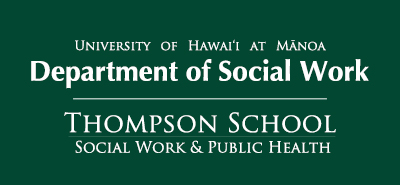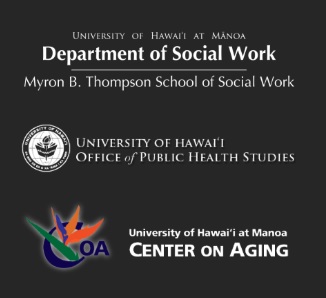Dean Patricia Ewalt, DSW, Changed Social Work Education in Hawaiʻi
A standout feature of the UH Mānoa Thompson School of Social Work & Public Health is the strong partnership between the school and the community organizations that offer students opportunities to gain practical experience.
But these partnerships did not always exist. Dr. Patricia Ewalt, who was dean of the school from 1986 to 2000, prioritized these relationships and brought them to the forefront of social work education in Hawaiʻi. Ewalt passed away earlier this year, but her legacy at UH lives on.
Social work students today continue to benefit from the partnerships she forged and strengthened, such as those with The Queen’s Medical Center, The Queen LilIʻuokalani Children’s Center, and the Hawaiʻi State Department of Corrections Division of Mental Health.
“As an educational leader, Dr. Patricia Ewalt demonstrated an incisive understanding of the intersections of research and practice,” said Noreen Mokuau, DSW, who recently retired as Dean of the Thompson School and now serves as a Professor Emerita.
“She served as an exemplary role-model for faculty to develop and transmit knowledge on practice, with unique relevance for the diverse peoples of Hawaiʻi,” Mokuau said.
Ewalt prioritized shifting the school’s focus toward multicultural education. She especially championed courses that taught students about Native Hawaiian culture and how it influences the practice of social work. In her hiring decisions, she expanded the diversity of the faculty.
“In her roles as President of the National Association of Social Workers and Editor-in-Chief of the journal Social Work, she influenced the direction of scholarship on multicultural issues and became a voice for new models for practice with diverse populations,” Mokuau said.
Ewalt earned her bachelor’s degree from Radcliffe College at Harvard University in 1956. She then earned her MSW from Simmons College in 1968, and her PhD from Brandeis University in 1978. She became the Dean of the School of Social Welfare at the University of Kansas in 1982, and then accepted the position of dean at UH in 1987. She published many articles, and advised on the Clinton Health Care Plan of 1993.
Sharon Otagaki, MSW, who worked as Ewalt’s Assistant to the Dean, said that Ewalt was known across the UH campus for her level-headed style of communication. “She never argued. She listened to everyone as they spoke, and then she responded.”
Whenever meetings grew contentious, Ewalt would first listen to all opinions, and then state what she thought. “She would never enter the fray, and she became one of the most respected deans on campus,” Otagaki said.
Ewalt was innovative in her approach to social work education. As early as the 1990s, she started distance-learning programs for students on neighbor islands, and hired instructors on each island to run the field work courses. She guided the school through the process of accreditation, and thoughtfully structured the curriculum to ensure the school would meet the accreditation standards.
She found opportunities for faculty members to do research projects and work in the community.
“She respected the faculty members as individuals, and gave them room to develop their own expertise,” Otagaki said.
When making tough decisions, Ewalt’s top priority was to improve the school and its programs. “She didn’t always give faculty members what they asked for, but she would listen to requests and then objectively decide what was best for the school,” she said.
Ewalt promoted the school with community programs across Hawaiʻi. Every year, she held an event at the East-West Center, inviting social workers from the community to share pupus, listen to Hawaiian music, and talk story with the UH faculty, Otagaki said.
She wanted community social workers to have a great relationship with the school.
Under Ewalt’s leadership, the Thompson School grew to be regarded as a premier institution for social work education. She sought to not only steer the school well, but also to become an integral part of the university’s leadership. She knew the school would benefit from the relationship.
“She felt that connections with community and state programs were essential to the school,” Otagaki said. “Many of the opportunities that we have for students today exist because of her leadership.”



